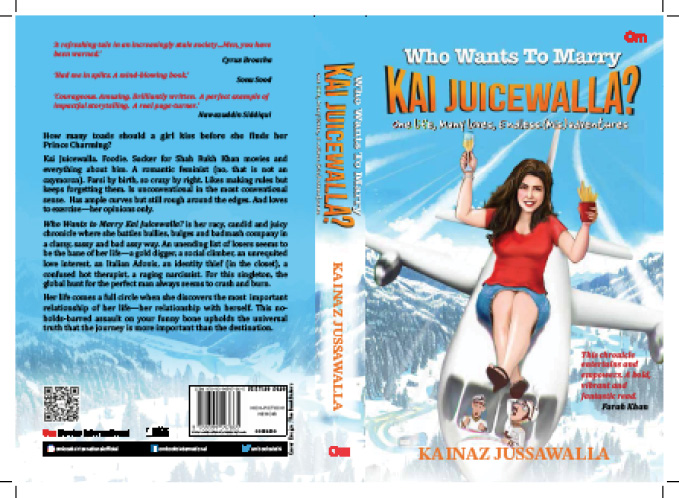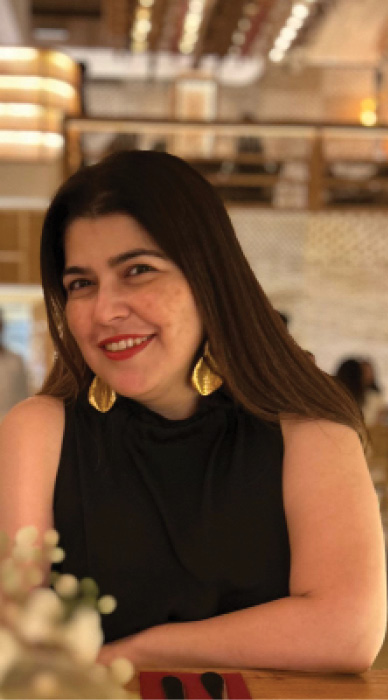Top Bollywood director Farah Khan has already described Kai Jussawalla’s book, Who Wants to Marry Kai Juicewalla: One Life, Many Love(s), Endless Misadventures as a chronicle with a Parsi zing that entertains and empowers. She has found the book a bold, vibrant, and entertaining read. Khan is the perfect Bollywood insider, and she knows very well what would be a teenager’s idea of love. It could be love poems, letters, songs, marathon phone conversations, cheap pizza dinners, and long suburban car rides. And eventually, the wheat is removed from the chaff, and love stretches to real people.
So let’s get into the book, published by Om Books International. For some strange reasons, I was reminded of Opal Mehta, the academically-oriented Indian-American girl who, after being told by Harvard professors that she is not well-rounded, doggedly worked to become a typical American teen. She then turned ultra-social, shopping and boy-driven and carelessly hip. How Opal Mehta Got Kissed, Got Wild, and Got a Life was pulped because of serious charges of plagiarism that prompted a public apology by the author, Kaavya Viswanathan. I loved the character of Opal Mehta. The book reflected the stereotype of high-pressure Indian families trying to get their children into Ivy League schools and how college students from Asian nations were socialising in a whole new way.

Jussawalla’s book was released in the month of Valentine; she had already made a strong statement about the content, peppered with Parsi humour. The book is all about her hunt for the most exciting person in life. My parents would have never approved of such a thing. But then, that is the beauty of life and the social changes that surround us. It could be unpredictable, even insane, but B-school professors are saying that is the new life spreading across the length and breadth of India, especially among women.
The book explains why Jussawalla never made great friends when she was a teenager, but she had no regrets because she could criss-cross the world as a crew member of an international airline. It seems that the author struggled hard with two competing images: her troubled days and her emergence as a power girl looking for the dream date. Chapters after chapters highlight why Jussawalla – as the ideal Bandra girl – is looking for love in the wrong places and making countless mistakes. As she mentions the Bonnie Taylor song “Total
Eclipse of the Heart”
“Once upon a time, I was falling in love
Now only I am falling apart
There’s nothing I can do
A total eclipse in the heart
Once upon a time, there was love in my life
But now there’s only love in the dark
Nothing I can say
A total eclipse of the heart.”
Boys with their dirty knees and fake cash didn’t impress Jussawalla. I got a feeling she tried looking for them all over Bandra – near Shah Rukh Khan’s house, Carter Road, Turner Road, Out of the Blue, The Convent, and at Taj Lands End. But actually, they were her tickets to romance, and she adored them more or less as a practical matter. She was never identified as a feminist, nor an influential woman. She was not enraged, and she was not obsessed with men. Her desire was to meet one specific man who could make her dreams come true. She was a cabin crew member; she wanted to get men on board — or one man, at the very least — for some very simple discussions. The
discussion had to be important; she could not just go on a date for goodness sake.
I missed meeting the author when she was in the Indian capital but heard some of her televised interviews where she talked about her rollercoaster journey to meet her ideal partner in this chaotic and imperfect world. She said during one such interview: “The protagonist that is me is actually seeking true love; like genuinely, madly, deeply, hopelessly. I could not masquerade as being one of those alpha feminists who were fine even marrying themselves if they had to. Self-love was all very well said and practised, but I needed love from that one special person. I craved love, drank love, ate love, pooped love. I was in love with love. I was not afraid of new love. I was afraid of old pain.” But does it work out? Not exactly. Her dates are total disasters, and many leave her heartbroken. But she rises time and again, and she reminds herself she will not let men ruin her romantic fantasies. In short, she wants to kick some butts and break some balls (even if made of steel like all American men). Jussawalla – who is very explicit at times – realises men truly respect a woman who is brave, authentic, and yet vulnerable. “It’s better to be single than miserable,” is her million-dollar line. She wants to break the glass ceiling and move away from the notion that Dad is always the captain. She seeks true equality in her home.
Falling in love, feminism for the author is not like churning butter. She wants to be that one individual who can change the other individual for the better. For her, every road would not lead to sexism. The author is not too quick to judge and probably guilty of the very sexism she railed against. But she makes it clear that she would not back down. She knows large-scale issues of sexual inequality remain, and women – we are in 2023 – still don’t make equal money for equal work and are victims of rape and domestic violence. She also knows – evident throughout the book – why women are, for the most part, still solely responsible for child-rearing and cooking and cleaning. No one in this world gives a damn about their careers.
Jussawalla, no matter how enraged she turns, still adores men and the possibility for romance they bring. She would love to dress up for dates and even dissect a candle-light dinner conversation with a new guy to determine if he might be The One. This is not about romance and romance; it is a very bold book where the author finds love and life rich in contradictions.

